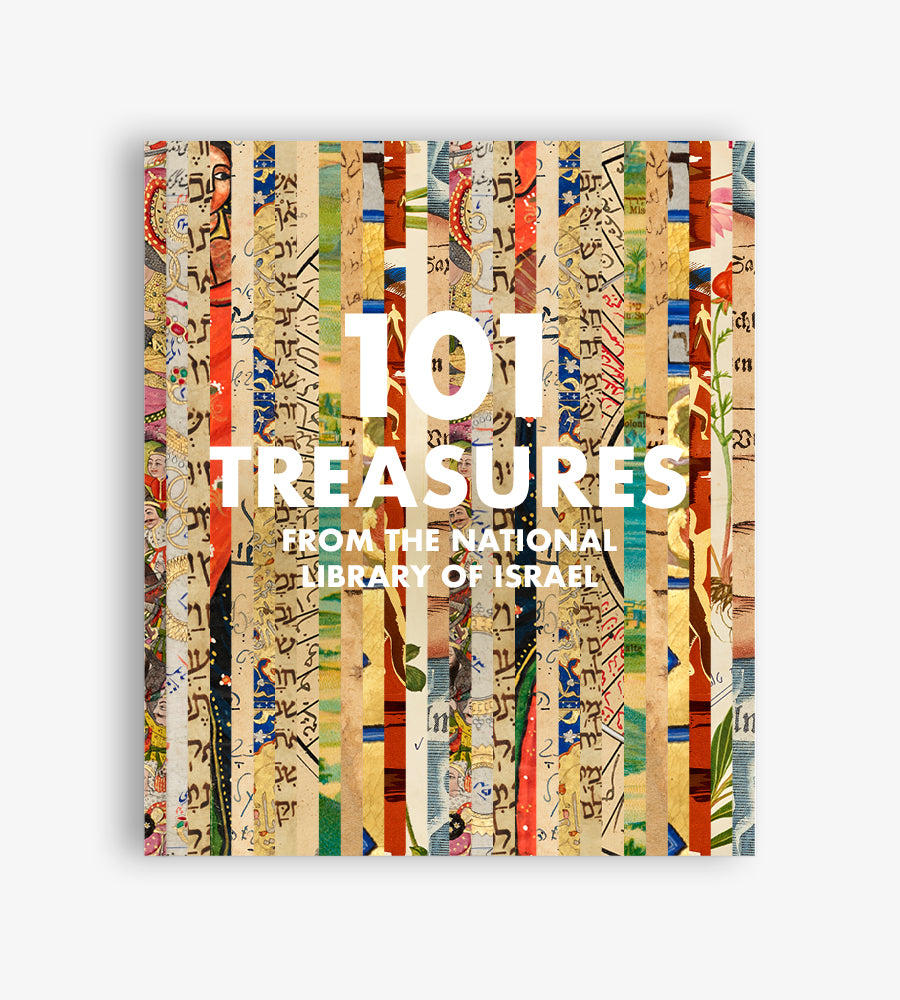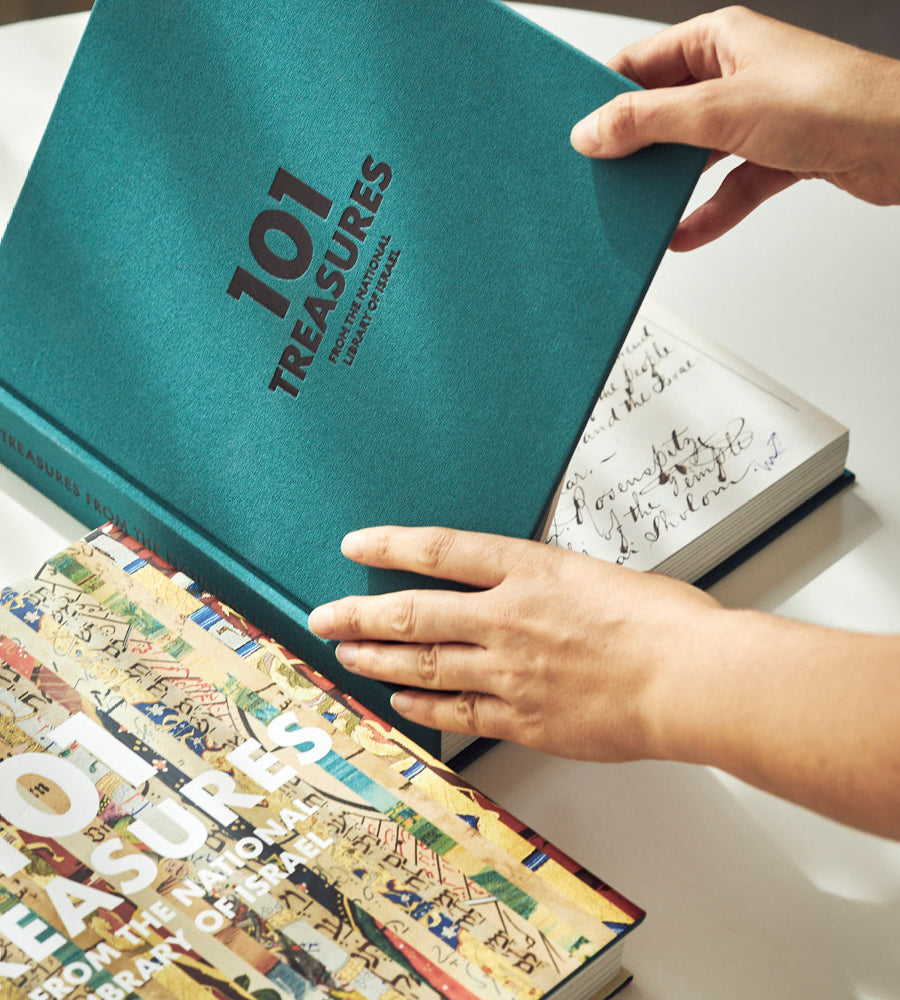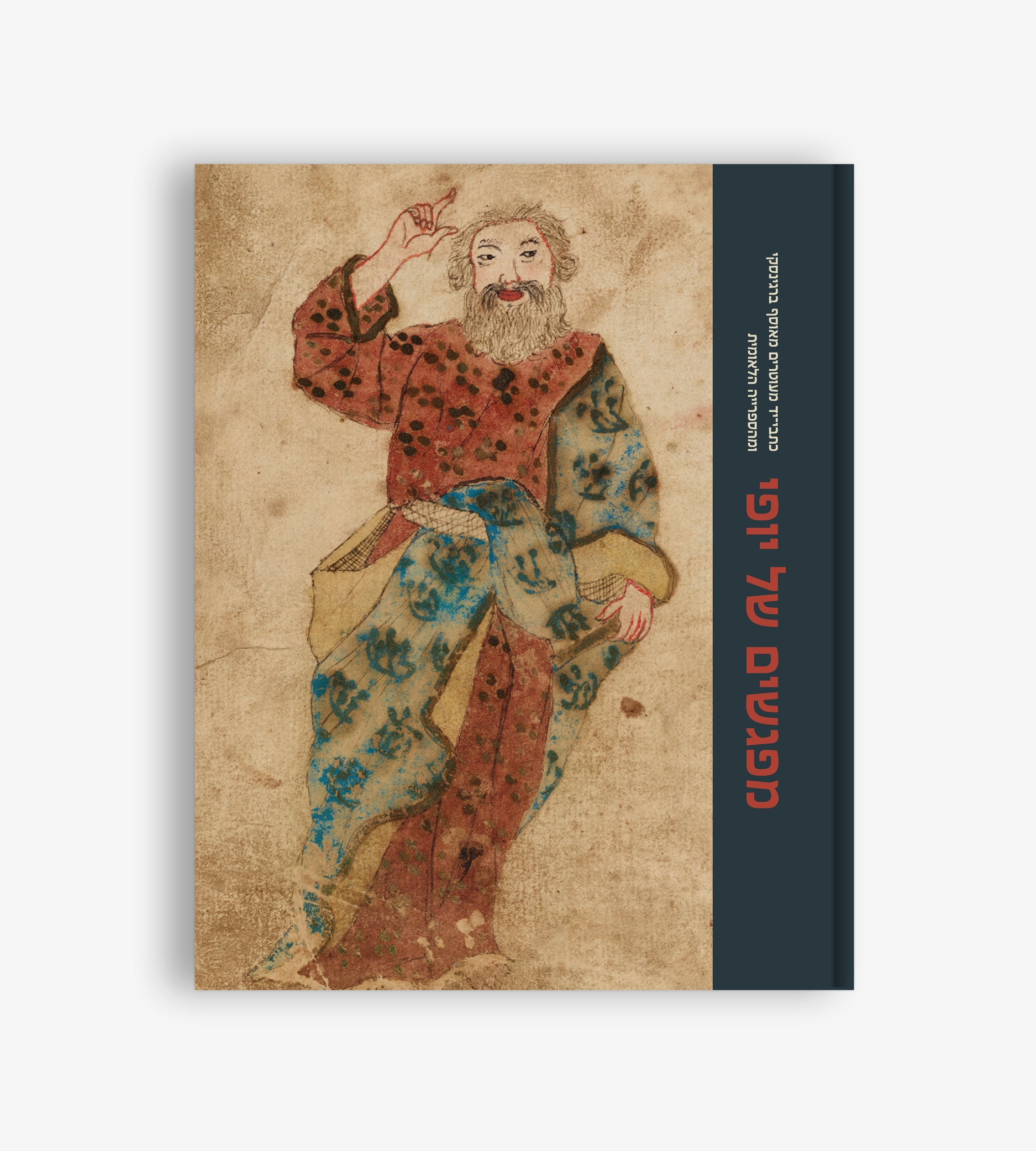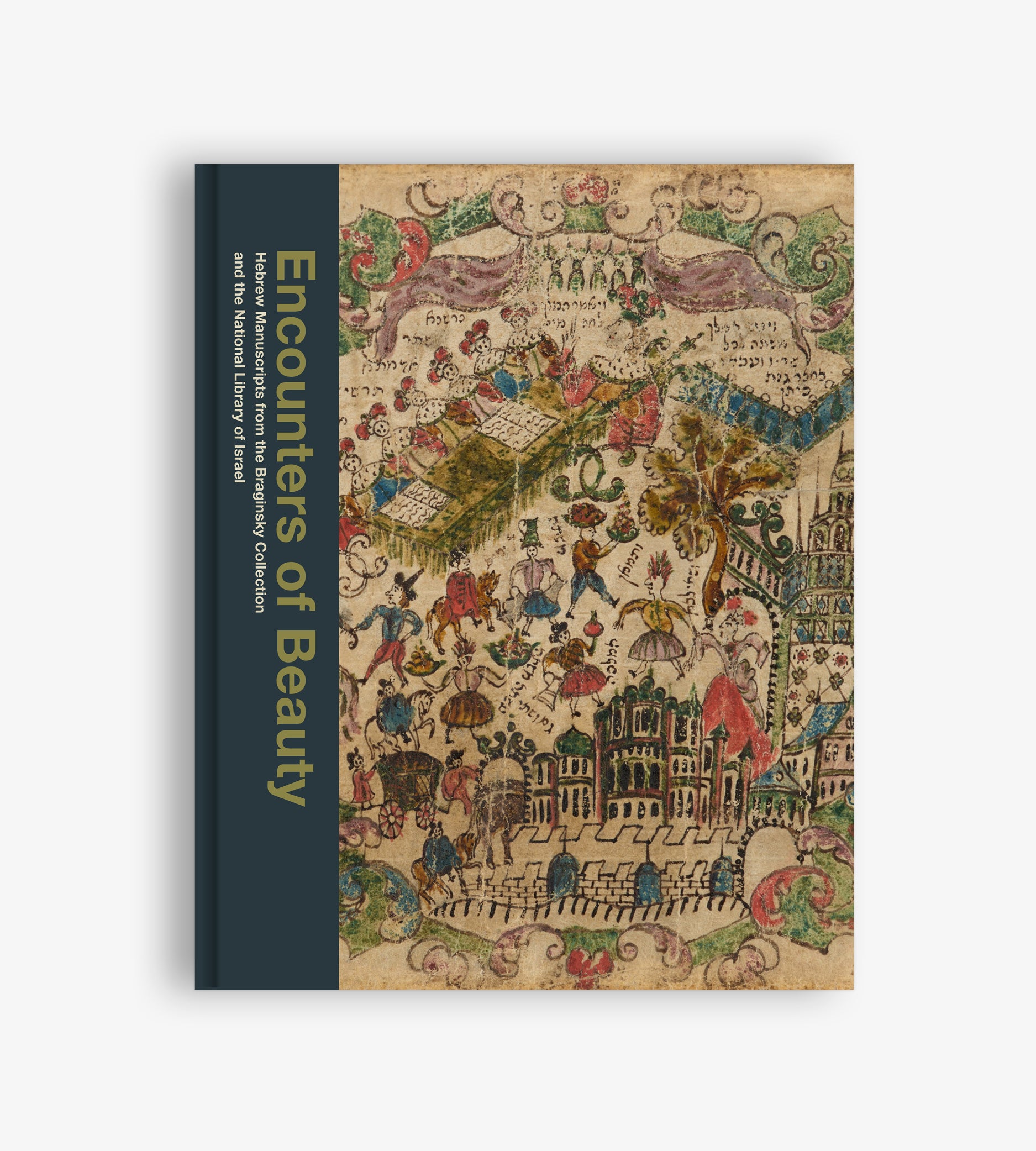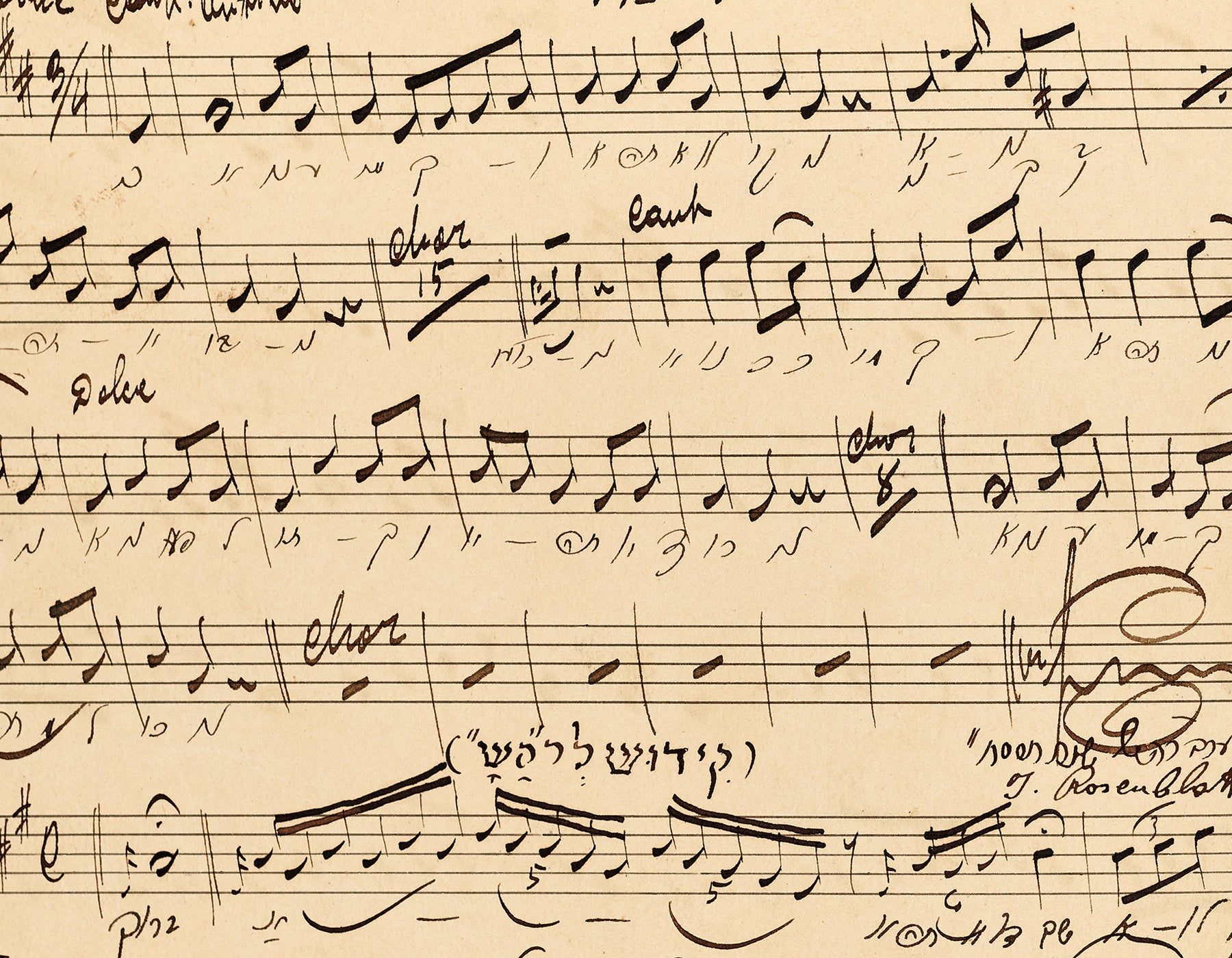
The Lost Works of a Legendary Cantor
Gila Flam and Amalia Kedem

Josef (Yossele) Rosenblatt (1882–1933) was a leading performer and composer in the twentieth-century golden age of cantorial music. Born in Ukraine, he began his career singing with his father at the age of eighteen and served as a cantor (hazan) first in Europe — Munkatch, Pressburg, and Hamburg — and then in New York. His great and continued popularity owes mainly to his pioneering recordings, released commercially on 78 rpm records as early as 1905. His tenor voice, both rich and sweet, and virtuosity reached the homes of Jewish and non-Jewish audiences through these records and later via broadcasts on the emerging radio stations in Europe and America.
Rosenblatt composed many cantorial pieces but did not leave behind a coherent archive. He died in 1933 in a tragic accident at the Dead Sea while shooting a film about the Holy Land. Some of Rosenblatt’s musical manuscripts were found in the archive of cantor Menachem (Emil) Gross. Gross had been studying at the Pressburg Yeshiva when Rosenblatt served there as a cantor and then, in 1907, succeeded Rosenblatt as cantor in Hamburg. In 1939, after serving also in Frankfurt, Gross immigrated to Palestine and became a cantor in Petah Tikva. His Pinkas Hazzan — several volumes of musical pieces, original and copied, for performance throughout the yearly cycle — was passed down to his grandson, who donated them to the National Library in 2015. The manuscripts include at least three (and possibly more) original pieces given to Gross by his friend and mentor, Yossele Rosenblatt, thus explaining how they unwittingly made their way to Jerusalem.


